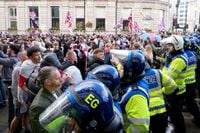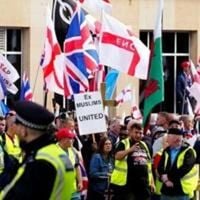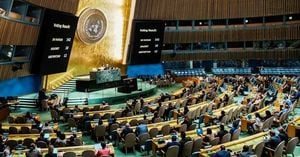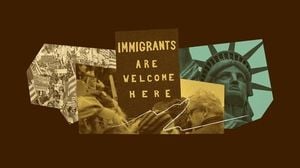More than 100,000 demonstrators surged through the streets of London on Saturday, September 13, 2025, drawn to the city center by a rally organized by the controversial far-right activist Tommy Robinson. The event, dubbed the "Unite the Kingdom" march, saw a sea of red-and-white St. George’s flags and Union Jacks stretching from the shadow of Big Ben, across the River Thames, and winding beyond Waterloo train station—a distance of about three-quarters of a mile, according to police estimates reported by multiple outlets, including the BBC.
The sheer scale of the rally—police put the number at about 110,000—was remarkable, though it still paled in comparison to the massive pro-Palestinian demonstration that drew an estimated 300,000 in November 2023, as noted by The Guardian. But size wasn’t the only thing setting Saturday’s events apart. The march unfolded amid a tense national debate over migration, with Robinson, whose real name is Stephen Yaxley-Lennon, billing the event as a defense of free speech and British heritage. He’s no stranger to controversy, having founded the nationalist and anti-Islamist English Defence League and repeatedly made headlines for his hardline views on migration and Islam.
Across the capital, a much smaller but determined group of about 5,000 counterprotesters assembled under the banner of "March Against Fascism," organized by the Stand Up To Racism group. Their message was clear: opposition to the far-right and support for refugees. The two groups were kept apart by more than 1,000 police officers and a buffer zone near the halls of government, as reported by Reuters. The Metropolitan Police described the day as "largely peaceful," though there were moments of tension when some in the Robinson-led crowd hurled objects at officers and attempted to breach crowd control barriers. Officers responded with force to hold the line, but widespread violence was averted.
As the marchers pressed forward, their chants echoed through the city: "We want our country back," they cried, waving flags and brandishing signs with messages like "stop the boats," "send them home," and "enough is enough, save our children." The slogans reflected a summer of unrest across the UK, marked by a series of anti-migrant protests outside hotels housing asylum seekers. Many of these protests were sparked by the conviction of an Ethiopian man for sexually assaulting a 14-year-old girl in a London suburb—an incident that inflamed public opinion and, in some cases, led to violence and arrests. According to The Times, these demonstrations were part of a broader backlash against what some see as unchecked migration and a perceived erosion of British identity.
Robinson’s own words to the crowd captured the mood: "Migrants now have more rights in court than the British public, the people that built this nation," he declared in a hoarse voice, as quoted by Sky News. His supporters, meanwhile, made their allegiance clear—not only to Robinson’s cause, but also to figures across the Atlantic. Many chanted crude refrains about UK Prime Minister Keir Starmer and expressed solidarity with slain US conservative activist Charlie Kirk, who was shot and killed on September 10, 2025, at Utah Valley University. Signs reading "Freedom of speech is dead. RIP Charlie Kirk" dotted the crowd, underscoring the international resonance of the day’s events.
Yet the rally was not without its critics. The counterprotesters, carrying signs emblazoned with "refugees welcome" and "smash the far right," made their voices heard, chanting "stand up, fight back" as they gathered in defiance of Robinson’s message. Stand Up To Racism, the organizing group, argued that the surge in nationalist sentiment was a dangerous development, warning of the risks posed by far-right mobilization in a climate already charged by economic uncertainty and divisive politics.
For many observers, the proliferation of UK flags this summer—at public events, draped from village lampposts, and now dominating the streets of London—has become a symbol open to interpretation. Some see it as a simple expression of national pride, while others worry it signals a shift toward exclusionary nationalism. The BBC noted that this debate is playing out not just at rallies, but in everyday life, as communities grapple with questions of identity and belonging.
Behind the scenes, police had prepared for the worst. With more than a thousand officers on duty, authorities established a clear buffer zone to keep the rival groups apart, mindful of the violence that marred some anti-migrant protests earlier in the year. While the day remained mostly peaceful, the Metropolitan Police reported that some "Unite the Kingdom" marchers attacked officers and attempted to break through security barriers, forcing law enforcement to intervene decisively to prevent escalation. No major injuries were reported, but the incident highlighted the volatility of such large-scale demonstrations.
Robinson himself has a checkered history with the law. He was unable to attend a planned "Unite the Kingdom" rally in October 2024 after being jailed for contempt of court, having violated a 2021 High Court order that barred him from repeating libelous allegations against a Syrian refugee—a case that drew significant media attention and led to a successful lawsuit against him. He has also served time for assault and mortgage fraud, facts that his critics often cite to challenge his credibility and motives. Still, Robinson’s influence on the British far right remains substantial. He urged his followers ahead of Saturday’s march not to wear masks, drink alcohol, or get violent—a plea for discipline that, for the most part, seemed to hold sway.
The broader context for Saturday’s events is a nation grappling with its future. The UK has been riven by heated debate over migrants crossing the English Channel in overcrowded inflatable boats, arriving on shore without authorization. The government’s response has been a patchwork of policy proposals and crackdowns, but the issue remains deeply divisive. For some, the "Unite the Kingdom" rally was a stand for sovereignty and tradition; for others, it was a warning sign of rising intolerance and the dangers of populist rhetoric.
As the sun set over the Thames and the crowds began to disperse, the city returned to its usual rhythm—but the questions raised by Saturday’s demonstrations lingered. What does it mean to be British in 2025? Who gets to decide the boundaries of national identity, and at what cost? The answers are far from settled, and if the size and fervor of both rallies are any indication, the debate is far from over.
Saturday’s dueling marches—one a mass of nationalist fervor, the other a defiant stand against the far right—offered a vivid snapshot of a country at a crossroads. The coming months will reveal whether the divisions on display in London’s streets will deepen or give way to a new sense of unity. For now, the echoes of "We want our country back" and "Stand up, fight back" serve as reminders that, in Britain’s ongoing conversation about identity and belonging, the stakes have rarely felt higher.





